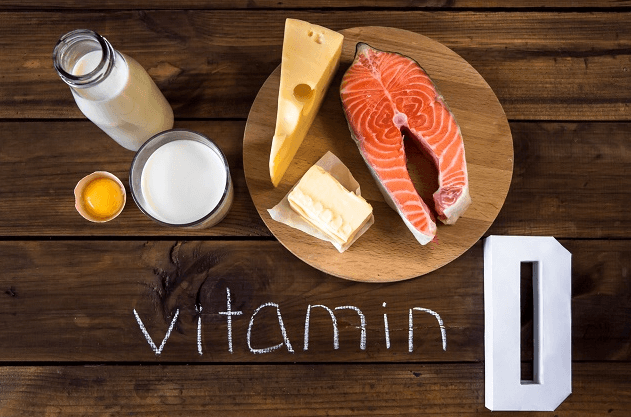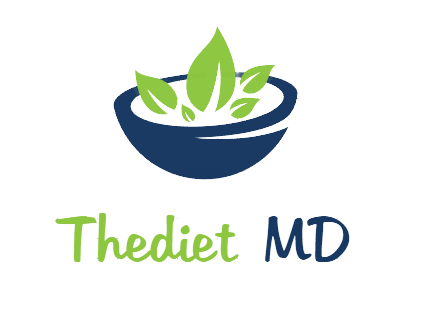Cod liver oil, salmon and mackerel are foods rich in vitamin D.
In addition to the sun’s rays, which are the primary source of this substance, these and other foods can complement the level of the vitamin in the body.
According to nutritionologist Tamara Mazaracki, vitamin D is a hormone that affects more than 1000 genes in most human tissues.
This means that the substance “plays an important role in numerous bodily functions, including cell growth, reduced inflammation, neuromuscular functioning, interaction with the intestinal microbiota and immune system activity,” explains the expert.
Therefore, to enjoy these and other benefits, it is necessary to have the appropriate vitamin D levels in the body. And one way to achieve this is through food.
So, check out the dietary sources of this hormone below. Also, look at the symptoms of lack of the vitamin in the body, what functions it plays and how pregnant and vegans can maintain reasonable rates.
Table of Contents
What foods are rich in vitamin D?
“Among foods, the best source is cod liver oil. Fish, eggs, whole milk and butter also contain small amounts”, cites the nutritionist Tamara Mazaracki.

In addition to these, the doctor reminds us that foods are fortified with vitamin D.
To find out what they are, it is necessary to check the labels of products, such as milk, cereals and flour.
See below the list of foods rich in this substance:
Cod liver oil
According to Dr. Mazaracki, one tablespoon of cod liver oil contains 1,360 IU (international unit) of vitamin D. The natural product is also rich in vitamin A.
Salmon
Salmon has 360 IU every 100 grams. But it also has other nutrients, such as omega-3 and vitamins A and K.
Mackerel
Also rich in omega-3s, mackerel-type fish have 100 grams of 345 IU of vitamin D, according to Mazaracki.
Sardine
Another source of D3 and omega-3 is sardines. In the case of the vitamin, this product can have up to 270 IU in 100 grams.
Egg yolk
The yellow part of the egg has 25 IU of D3 in each unit and is rich in animal protein and cholesterol.
Fortified milk
For the doctor, in 1 litre of milk, there is approximately 400 IU of vitamin D. However, this drink is also rich in calcium, protein and vitamins of the B complex.
Other sources of this hormone
As mentioned at the beginning of the article, the sun’s rays are the pribody’s mary sources of vitamin D.
Thus, it is essential to expose yourself to the sun three times a week without sunscreen. In addition, each exposure should last 20 minutes, and the ideal time is from 11:00 am to 3:00 pm, as, according to the nutritionist, “it is the time of greatest intensity of UVB rays, and it is a

Another way to get this nutrient is by opting for supplementation. However, it is only necessary when there is a proven lack of the vitamin.
“To know if there is a need for replacement, it is essential to measure the level of 25-hydroxy vitamin D in the blood. The D3 level must be above 40 mg/ml to check the protective and preventive effects. If the levels are low, supplementation should be done”, explains Mazaracki.
But both the exam and the vitamin intake must be done under the supervision of a doctor.
Also, according to the neurologist, the recommended supplementation dose will depend on several factors, ranging from 1,000 IU to 10,000 IU per day.
Benefits of this substance
The relationship of vitamin D3 to maintaining healthy bones and teeth is not surprising to most of the population.
But this benefit goes beyond, and the hormone prevents osteoporosis and rickets.

It even acts as a general and neuronal anti-inflammatory, helping to tone old brains and treat aging-related memory loss.
“Vitamin D deficiency is linked to Parkinson’s disease and depression,” highlights nutritionologist Tamara Mazaracki.
Not only that, according to the doctor, several studies indicate that people with a higher level of D3 age more slowly than people with low levels of vitamin.
In addition, the nutrient protects against various types of cancer.
“Women with deficient vitamin D levels are five times more likely to develop breast cancer. Men with vitamin D deficiency have a doubled risk of prostate cancer,” says the doctor.
This nutrient also acts on the digestive system, protecting the intestine against diseases such as irritable bowel syndrome and ulcerative colitis.
Relationship with the respiratory system
Few people know, but vitamin D helps prevent colds and flu due to its decisive action on the immune system. With this, it defends the body against viruses, fungi and bacteria.
Not to mention the preventive effect of lung cancer, especially in smokers, as highlighted by Mazaracki. All this is thanks to the vitamin’s immunomodulating action.
Preventive actions of vitamin D3
According to the nutritionologist, this hormone can help prevent various diseases, such as:
- Hypertension
- Heart disease
- Obesity
- Diabetes
- insulin resistance
- Disbiose
- autoimmune diseases
- Rheumatoid arthritis
- Crohn’s disease
- Caries
- Periodontal disease
- Tuberculosis
- Asthma
- Septicemia
- Psoriasis
- Eczema
- Hearing Loss
- osteoporosis
- Cystic fibrosis
- Multiple sclerosis
- Migraine
- Depression
- Insomnia
- Alzheimer’s disease
- Schizophrenia
- Autism
- athletic performance
- Myalgia (muscle pain)
- Muscle injury
- macular degeneration
- Myopia
- Convulsions
- Pre-eclampsia.
What are the symptoms of a lack of vitamin D in the body?
Low immunity, muscle weakness, periodontal disease, bleeding gums and high blood pressure are some of the main symptoms of a lack of vitamin D.
“The risk of high blood pressure increases by 67% in women with low levels of vitamin D”, warns the doctor.
In addition, she says that research shows that patients with chronic pain also have critical levels of this substance.
D3 insufficiency has been strongly associated with several systemic diseases for all these reasons. But, at first, the problem may be asymptomatic.
“The result of a clinical review published in 2017 by the American Osteopathic Association revealed that almost 1 billion people in the world may have insufficient levels of vitamin D due to chronic diseases, inadequate sun exposure and use of sunscreen”, he says.
Also, according to the doctor, sunscreens from SPF 15 can block vitamin D production by up to 99%.
Related Diseases
“Vitamin D deficiency can contribute to osteoporosis, rickets, low immunity, dysbiosis (intestinal inflammation), diabetes, asthma, cardiovascular diseases, cancer and many others,” says Mazaracki.
Questions and trivia
In addition to mentioning which foods are rich in vitamin D and explaining their importance in the body, we also decided to clarify some doubts with Doctor Mazaracki.
Check out the most frequently asked questions and trivia on the topic below and take the opportunity to stay on top of this hormone that is so important for human health!
What is vitamin D?
According to the neurologist Tamara Mazaracki, there are four types of vitamin D; they are D2 (synthetic), D3, D4 and D5.
How important is this hormone during pregnancy?
Also, according to the doctor, this hormone has a vital role in pregnancy, both in terms of the health of the mother and the baby.
“Some studies show that an adequate dose of maternal vitamin D may be one of the factors in preventing autism. Vitamin D deficiency in the first trimester of pregnancy was associated with an increased risk for gestational diabetes, and this risk increases if the deficiency persists into the second trimester,” he warns.
Therefore, the mother-to-be must assess the status of this substance from the beginning of the pregnancy. And, of course, always keep in touch with the doctor who will accompany you.
Does vitamin D lose weight?
Research shows people with adequate levels of D3 have an easier time losing weight. However, the neurologist explains that the vitamin should not be used for weight loss.
“Metabolism depends on several factors, including vitamin D and many other nutrients. The ideal is to be balanced to maintain a healthy weight, and the most important thing is to eat right.”
Is there any tea that contains this vitamin?
D3 is present in products of animal origin or that are fortified. For this reason, teas made from plant-based products are not sources of this vitamin.
What is the relationship between vitamin D and black skin?
According to information from the neurologist, people with black skin tend to have an easier time developing a vitamin deficiency than whites. And this is due to the colour of the skin.
“Melanin, present in high concentration in black skin, acts as a sunscreen, preventing the entry of UVB rays into the epidermis and the consequent production of vitamin D,” he explains.
Therefore, people with darker skin need to spend more time in the sun to guarantee this nutrient.
What is the relationship of this hormone with other nutrients?
Calcium and magnesium are two minerals that have a direct relationship to D3. For example, the vitamin maximizes the body’s absorption and utilization of calcium.
“Magnesium and D3 have an important relationship – if the level of the mineral is low, there is a reduction in the conversion of vitamin D to its active form”, highlights the neurologist.
In addition, other vitamins and minerals also establish interaction with D, such as vitamin K2, zinc, boron and vitamin A.
How can vegans acquire this nutrient?
As it is an animal-derived hormone, vegans do not consume foods rich in vitamin D3.
In this case of dietary restriction, Tamara Mazaracki advises sunbathing more often and vitamin supplementation after consulting a specialist.
My name is Ellie Lauderdale, MD and I am USA based professional Nutritionist .
I am a Registered Dietitian Nutritionist and board certified specialist in sports dietetics who is trained in integrative medicine. I have worked with hundreds of clients, from those suffering with chronic disease to professional and olympian athletes. My goal is to help optimize you from the inside so that you can feel, perform, and look your best on the outside.

